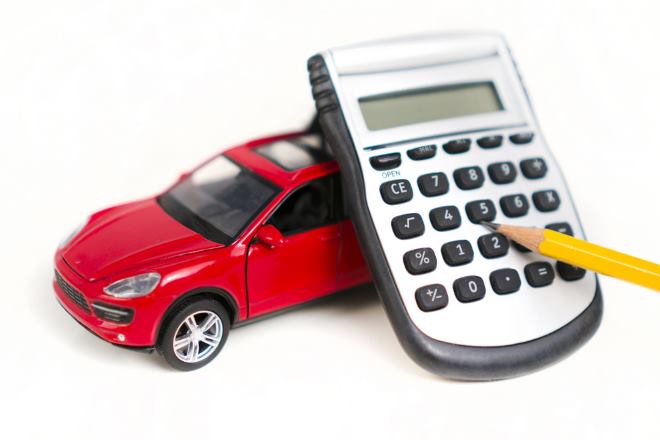Cars on monthly instalments: What you should know
Approximately 60% of South African car buyers focus only on monthly payment amounts without understanding the full financial picture. What you don't know about vehicle financing terms, interest calculations, and repayment structures could cost you significantly more over time. From understanding how deposit amounts affect monthly instalments to knowing the difference between various financing products, there are essential factors that determine whether you're getting good value or paying premium rates for your next vehicle.

Monthly car instalments offer a practical solution for those who need reliable transportation but cannot afford to pay cash upfront. This financing approach involves borrowing money to purchase a vehicle and repaying it in fixed monthly amounts over a predetermined period, typically ranging from 12 to 72 months.
How to Get a Car with no Down Payment
Securing vehicle financing without a down payment is possible through various lenders and dealerships. Many financial institutions offer 100% financing options, though these typically come with higher interest rates and stricter credit requirements. Banks like Standard Bank, ABSA, and Nedbank provide zero-deposit vehicle finance for qualifying applicants. The key factors lenders consider include your credit score, monthly income, employment stability, and debt-to-income ratio. Without a deposit, you may face higher monthly payments and longer repayment terms to offset the increased risk to the lender.
Buy Car without down payment Options
Several financing alternatives exist for buyers who cannot make an initial deposit. Balloon payment schemes allow lower monthly instalments by deferring a large portion of the payment to the end of the term. Rent-to-own agreements provide another pathway, where you essentially lease the vehicle with the option to purchase at the end. Some dealerships offer in-house financing with flexible terms, though these often come with higher costs. Trade-in vehicles can also serve as a deposit substitute, using your current car’s value to reduce the amount you need to finance.
Get Car Finance Without Credit Check
While traditional lenders always perform credit checks, some alternative financing options exist for those with poor or no credit history. Certain dealerships work with specialized lenders who focus more on current income and employment status rather than credit scores. However, these arrangements typically involve significantly higher interest rates and may require additional security measures like guarantors or higher deposits. It’s important to note that completely avoiding credit checks is rare in legitimate financing arrangements, and buyers should be cautious of offers that seem too good to be true.
Auto financing options at dealerships
Dealership financing provides convenience and often competitive rates through partnerships with multiple lenders. Many dealerships in South Africa work with banks, credit unions, and specialized automotive finance companies to offer various packages. These may include manufacturer incentives, promotional interest rates, and flexible terms tailored to different customer profiles. Dealership finance managers can often secure approval for customers who might struggle with direct bank applications, as they have relationships with multiple lenders and understand which institutions are most likely to approve specific situations.
| Provider | Monthly Payment Range | Interest Rate Range | Loan Term Options |
|---|---|---|---|
| Standard Bank | R2,500 - R8,000 | 10.5% - 15.75% | 12-72 months |
| ABSA | R2,200 - R7,500 | 11.25% - 16.25% | 24-60 months |
| Nedbank | R2,800 - R9,000 | 10.75% - 15.50% | 12-84 months |
| Wesbank | R2,400 - R8,500 | 11.50% - 17.00% | 24-72 months |
| MFC | R2,000 - R6,500 | 12.25% - 18.50% | 12-60 months |
Prices, rates, or cost estimates mentioned in this article are based on the latest available information but may change over time. Independent research is advised before making financial decisions.
The approval process for vehicle finance typically involves submitting proof of income, bank statements, identification documents, and employment verification. Lenders assess your affordability by calculating your debt-to-income ratio and ensuring you can comfortably manage the monthly payments alongside your existing financial obligations. The vehicle itself serves as security for the loan, meaning the lender can repossess it if payments are not maintained.
Interest rates vary significantly based on factors such as credit score, loan amount, repayment period, and the age of the vehicle being financed. New cars generally attract lower interest rates compared to used vehicles, as they present less risk to lenders. The total cost of the vehicle increases substantially when financed, as interest charges accumulate over the repayment period.
Before committing to any financing agreement, carefully review all terms and conditions, including early settlement penalties, insurance requirements, and maintenance obligations. Consider the total cost of ownership, including insurance, maintenance, and fuel costs, to ensure the monthly commitment remains sustainable throughout the loan period. Shopping around with multiple lenders can help secure more favorable terms and potentially save thousands over the loan’s lifetime.




